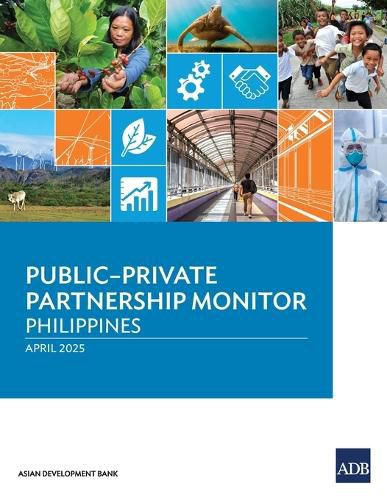Readings Newsletter
Become a Readings Member to make your shopping experience even easier.
Sign in or sign up for free!
You’re not far away from qualifying for FREE standard shipping within Australia
You’ve qualified for FREE standard shipping within Australia
The cart is loading…






This title is printed to order. This book may have been self-published. If so, we cannot guarantee the quality of the content. In the main most books will have gone through the editing process however some may not. We therefore suggest that you be aware of this before ordering this book. If in doubt check either the author or publisher’s details as we are unable to accept any returns unless they are faulty. Please contact us if you have any questions.
This report assesses the well-developed national, sectoral, and local public-private partnership (PPP) ecosystems of the Philippines and identifies challenges that impact on projects, such as foreign investment restrictions, procurement roadblocks, and institutional and regulatory issues.
The Government of the Philippines has made great strides at improving the public-private partnership (PPP) enabling environment and strengthening its PPP institutional framework. Its new PPP Code adopted in 2023 considers key challenges and lessons learned in PPPs for over 3 decades. Under the guidance of its PPP Governing Board and Public-Private Partnership Center, the Philippines is now poised to embark upon a massive PPP program in the national and local spheres.
The report examines the Philippines' national, sectoral, and local PPP landscape and looks at the government's PPP action plan to increase strategic investment in these sectors and considers how legal, regulatory, and institutional reforms can improve the way the Philippines uses PPPs to drive inclusive growth and sustainable development. The report also provides an overview of the country's PPP initiatives in 12 sectors from roads to solid waste, analyzing risks and showing how the country can better use PPPs to bridge its infrastructure gap.
$9.00 standard shipping within Australia
FREE standard shipping within Australia for orders over $100.00
Express & International shipping calculated at checkout
This title is printed to order. This book may have been self-published. If so, we cannot guarantee the quality of the content. In the main most books will have gone through the editing process however some may not. We therefore suggest that you be aware of this before ordering this book. If in doubt check either the author or publisher’s details as we are unable to accept any returns unless they are faulty. Please contact us if you have any questions.
This report assesses the well-developed national, sectoral, and local public-private partnership (PPP) ecosystems of the Philippines and identifies challenges that impact on projects, such as foreign investment restrictions, procurement roadblocks, and institutional and regulatory issues.
The Government of the Philippines has made great strides at improving the public-private partnership (PPP) enabling environment and strengthening its PPP institutional framework. Its new PPP Code adopted in 2023 considers key challenges and lessons learned in PPPs for over 3 decades. Under the guidance of its PPP Governing Board and Public-Private Partnership Center, the Philippines is now poised to embark upon a massive PPP program in the national and local spheres.
The report examines the Philippines' national, sectoral, and local PPP landscape and looks at the government's PPP action plan to increase strategic investment in these sectors and considers how legal, regulatory, and institutional reforms can improve the way the Philippines uses PPPs to drive inclusive growth and sustainable development. The report also provides an overview of the country's PPP initiatives in 12 sectors from roads to solid waste, analyzing risks and showing how the country can better use PPPs to bridge its infrastructure gap.